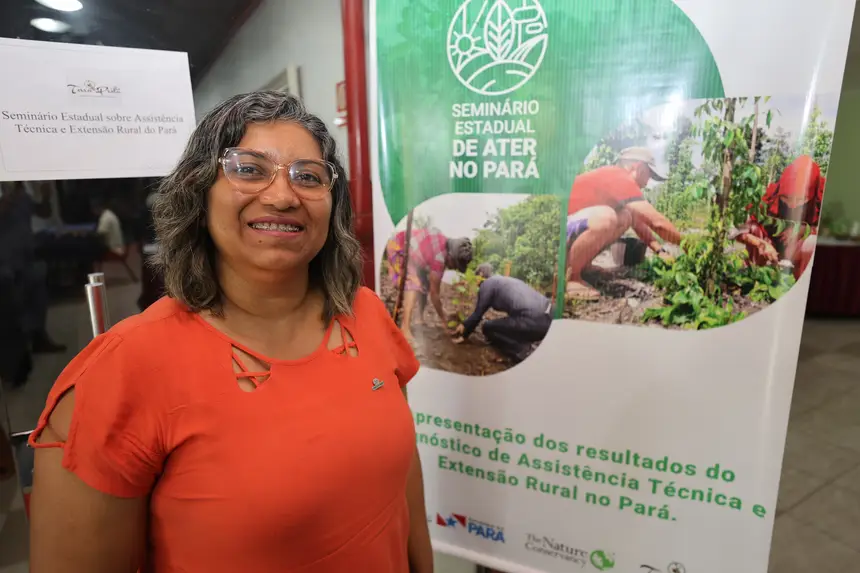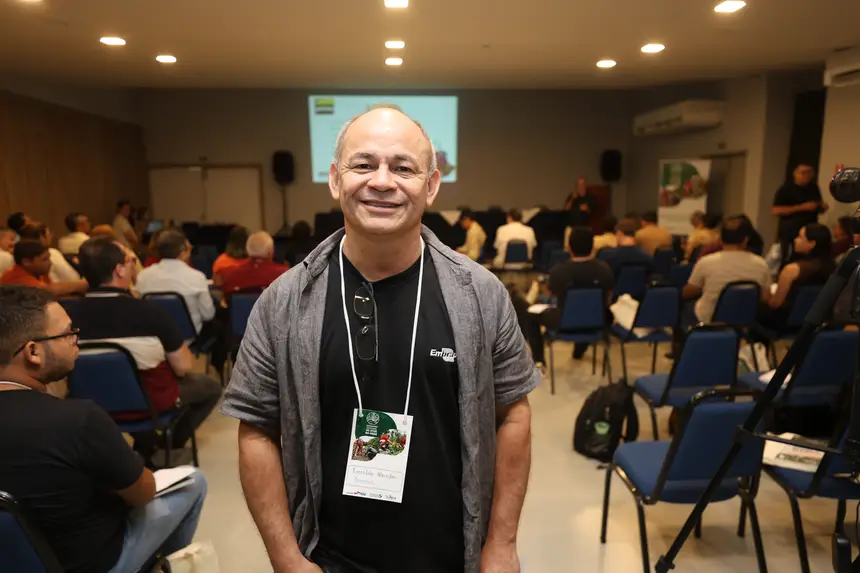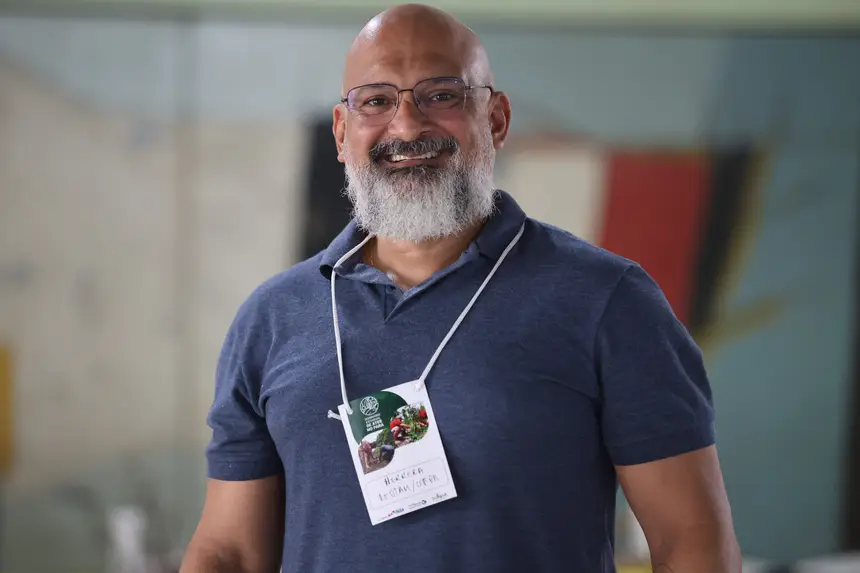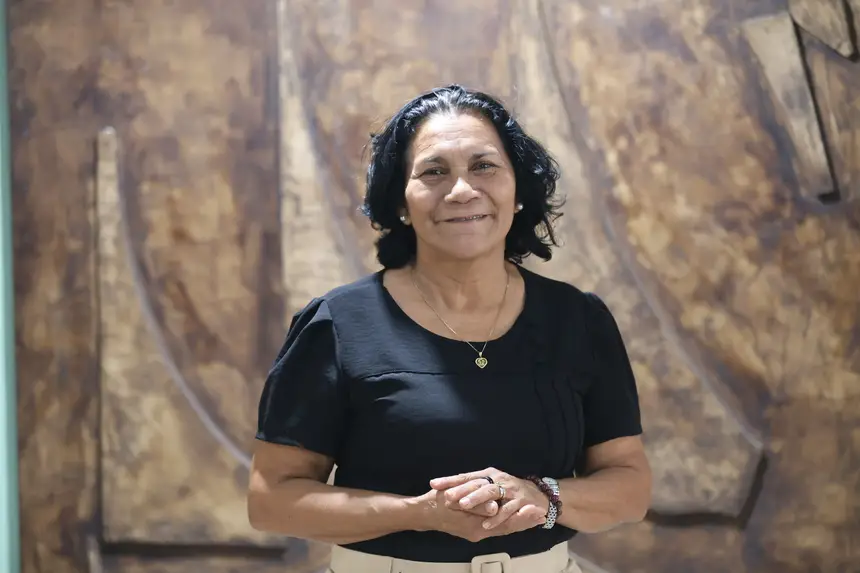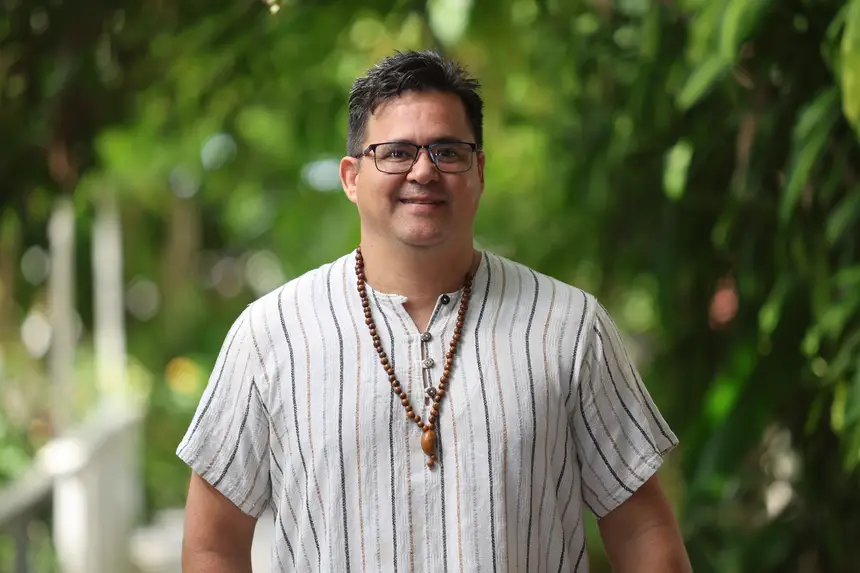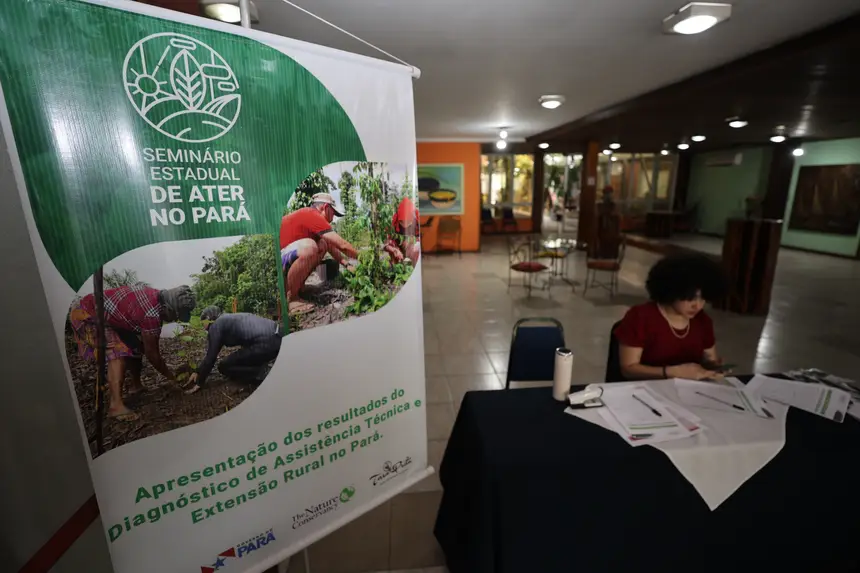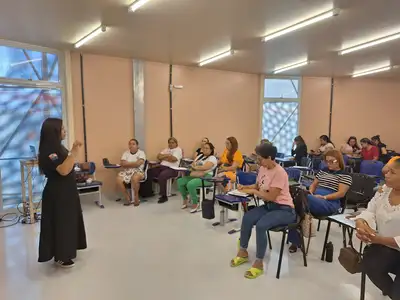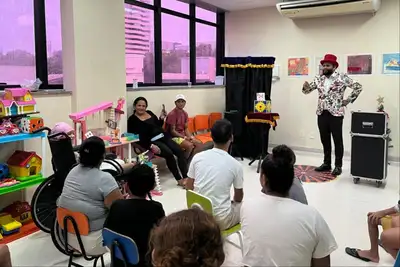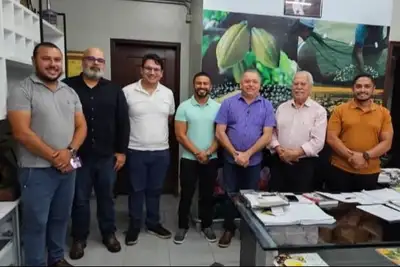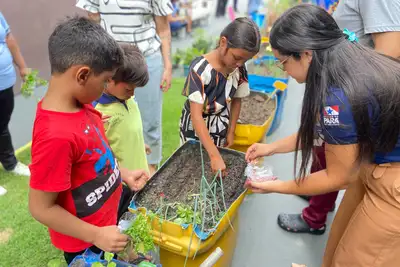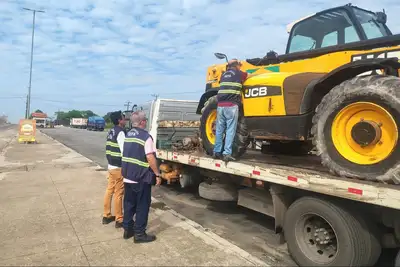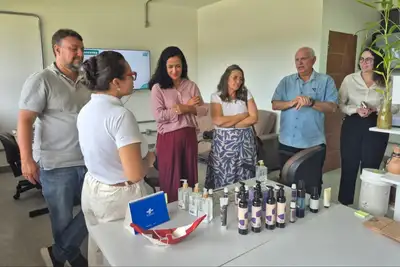Government of Pará promotes seminar to strengthen technical assistance and rural extension
Event in Belém brought together representatives from public institutions, civil society, and social movements to discuss unprecedented diagnosis on family farming and traditional communities
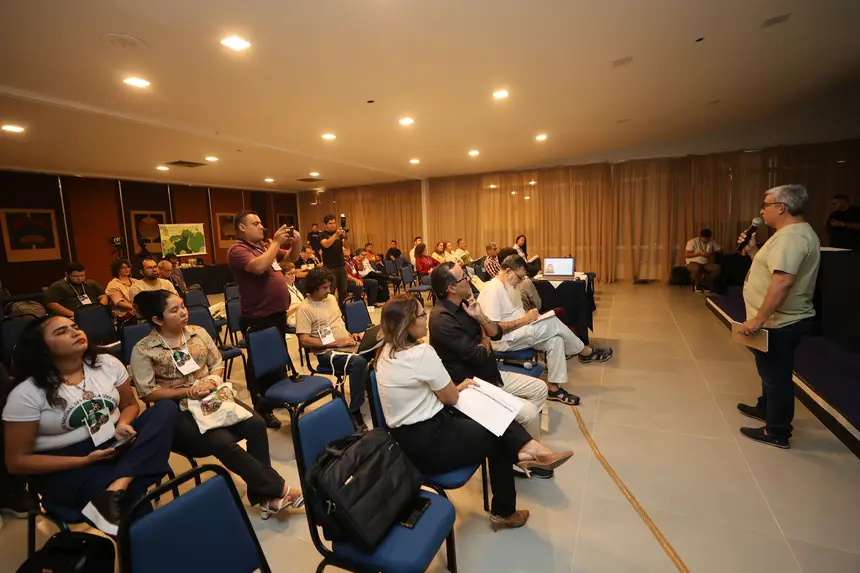
The Government of Pará, through the State Secretariat of Family Agriculture (Seaf), held the State Seminar on Technical Assistance and Rural Extension (ATER) on September 3 and 4 in Belém. The meeting, considered a milestone for the construction and improvement of public policies aimed at family farming, peoples, and traditional communities, aimed to present the results of an unprecedented diagnosis on the ATER scenario in the State, as well as propose solutions to strengthen the sector.
Responsible for 70% of the production of basic foods consumed in Pará and for about 27 million hectares of forests essential for climate balance, family agriculture and traditional communities (AFCT) still face challenges to expand their production and ensure access to public policies.
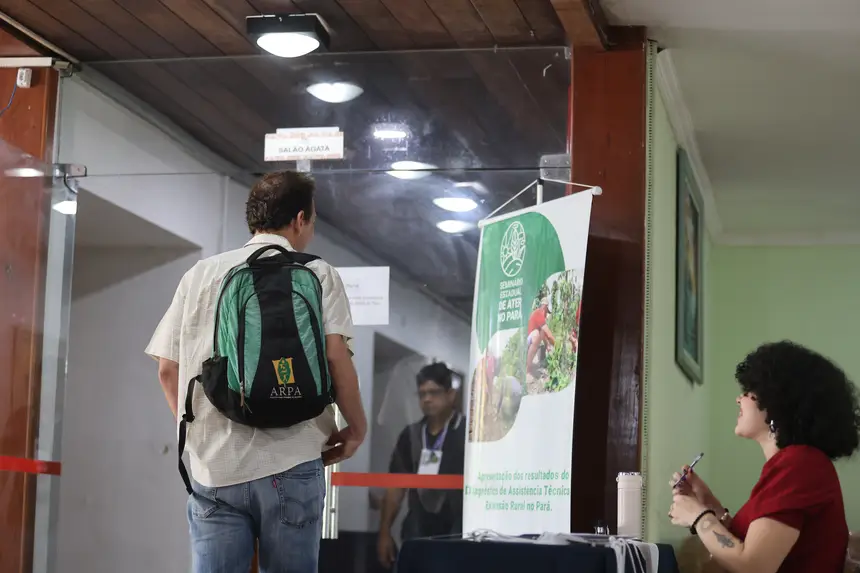
“We are building a new state system of ATER to serve family farmers and, with this diagnosis, we now have the elements to establish a pact between government and society,” highlighted the event organization.
More than 50 representatives from public institutions, civil society organizations, and social movements participated in the seminar, which was partnered with the international organization The Nature Conservancy, organized by Terra Preta – Socio-environmental and Educational Solutions, and supported by various institutions operating in the State.
State network of technical assistance
The director of Productive Organization and Traditional Community of Seaf, Anderson Serra, emphasized that the diagnosis provides a deepening of the reality of ATER in Pará.
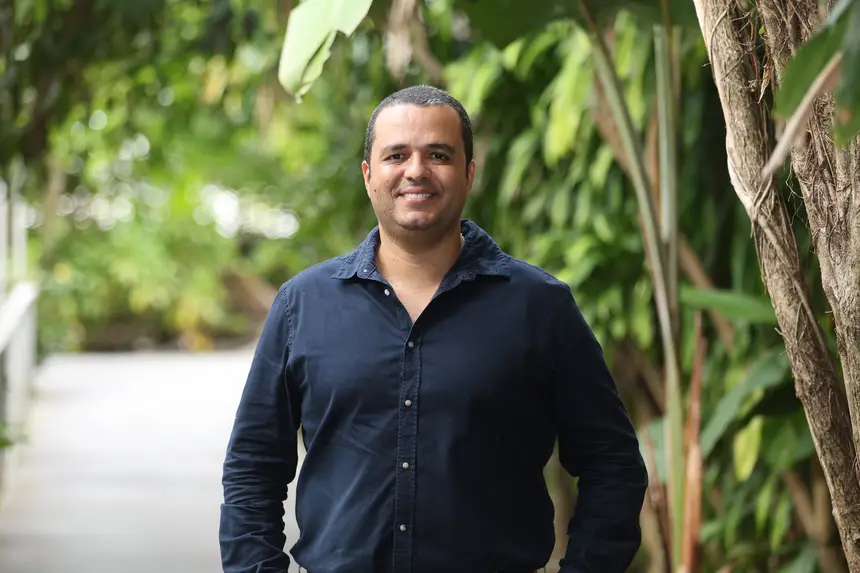
“This meeting allows us to advance the organization of a state network of technical assistance to expand and improve the service in Pará. ATER is strategic to ensure access to public policies, such as rural credit, land regularization, environmental and sanitary regulation of bioeconomy agro-industries, among others,” he stated.
The study was coordinated by the professor from the Federal Institute of Pará (IFPA), Romier Sousa, and reached the 12 Integration Regions of the State. “The main objective was to map the institutions that provide some type of technical assistance service for family farming, peoples, and traditional communities, identify potentialities and bottlenecks, so that we can improve the public policy of ATER. In total, 437 initiatives were recorded,” he explained.
Voices from the field
The director of the Federation of Workers in Agriculture, Angela de Jesus, evaluated the importance of the data collected.
“Technical assistance is a pillar of production, marketing, and environmental recovery. Therefore, it is so important to invest in this area because it truly changes realities,” she stated.
The technical coordinator of the State Technical Assistance and Rural Extension Company of Pará (Emater), Cristiane Corrêa, added that the diagnosis records about 350,000 rural family producer families, riverside dwellers, and indigenous people, the target audience of the national ATER policy.
“I consider this seminar a milestone because it enables the integration of all institutions, with the discussion of public policies based on this diagnosis, strengthening actions aimed at rural families in our State,” she highlighted.
Training and qualification
The professor from the Federal University of Pará (UFPA), Altamira Campus, and coordinator of the Laboratory for the Study of Territorial Dynamics in the Amazon (Ledtam), José Herrera, emphasized the strategic role of training professionals who work in ATER.
“It is essential to enhance continuous qualifications, advance in demanding topics, especially in the economy of sociobiodiversity. Our role is to help strengthen this training network, ensuring integration among different specificities of Pará. This strengthens ATER in the State,” he explained.
Program
The program included round tables, presentation of the diagnosis, debates in working groups, discussion circles on practical experiences in rural extension, and the panel “The demand for ATER from social organizations.” The closing gathered final commitments to consolidate a common agenda in favor of strengthening technical assistance and rural extension in Pará.


